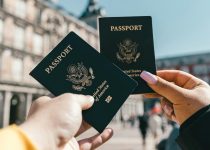H-1B Visa Jobs for Foreign Tech Workers – 2025/2026 Hiring Guide
The United States remains a global hub for technology, attracting skilled professionals from around the world who dream of working for companies like Google, Amazon, or Tesla. For foreign tech workers, particularly from Africa, including Nigeria, the H-1B visa is a key pathway to secure high-paying jobs in software development, data science, and engineering. In 2025, with a projected need for 1 million more STEM workers by 2033, U.S. tech firms are actively sponsoring H-1B visas to fill talent gaps. However, the visa process is competitive, with only 85,000 visas available annually.
This comprehensive guide explores the H-1B visa, top tech jobs for 2025/2026, leading companies offering sponsorship, and actionable strategies to stand out. Written in simple language, it draws on the latest job market trends to help you navigate the H-1B process and land your dream tech job in the U.S.
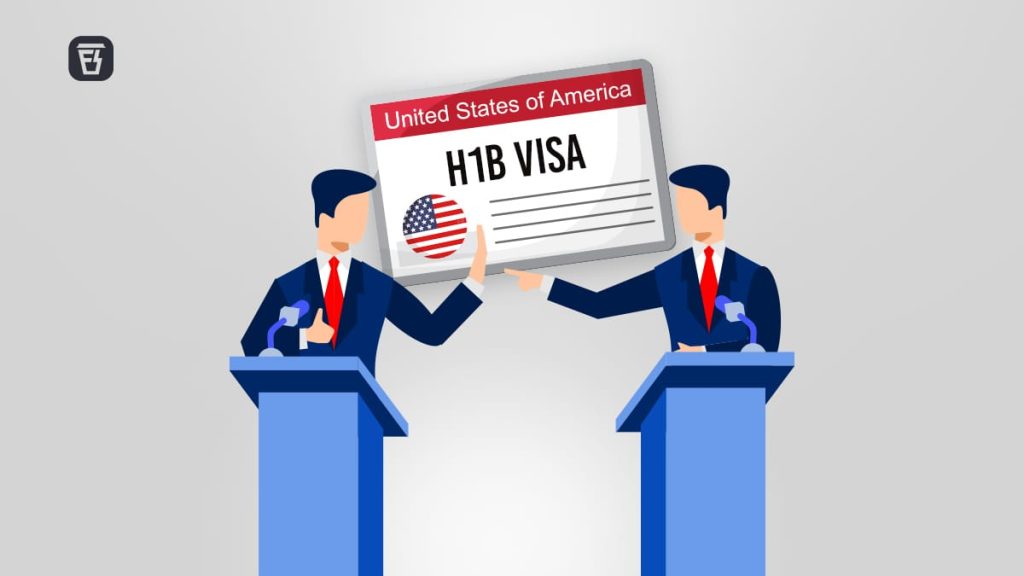
What Is the H-1B Visa and Why It Matters for Tech Workers
The H-1B visa is a temporary work visa that allows U.S. employers to hire foreign professionals in specialty occupations requiring a bachelor’s degree or higher. In tech, this includes roles like software engineers, data scientists, and IT specialists. The visa lasts up to three years, extendable to six, and can lead to permanent residency through employer-sponsored green cards. With an annual cap of 65,000 visas plus 20,000 for U.S. master’s degree holders, demand far exceeds supply, making the H-1B lottery highly competitive. For fiscal year (FY) 2026, USCIS received enough registrations to meet the cap by March 24, 2025, selecting 120,141 beneficiaries.
For foreign tech workers, the H-1B is a gateway to salaries averaging $100,000 to $170,000, career growth, and exposure to cutting-edge innovation. Africans, especially Nigerians with strong tech training from universities like Lagos, are well-positioned due to their English fluency and growing presence in global tech. The visa’s importance is underscored by tech giants’ reliance on H-1B workers, with companies like Amazon securing 9,265 approvals in 2024. Despite debates about its impact on U.S. workers, the program drives innovation, making it critical for foreigners aiming to join Silicon Valley or other tech hubs.
Why Tech Companies Sponsor H-1B Visas
The U.S. tech industry faces a persistent talent shortage. With only 85,000 H-1B visas available annually, companies like Google and Microsoft compete to hire global talent for roles requiring specialized skills, such as artificial intelligence (AI) or cloud computing. The National Center for Education Statistics reports a steady rise in U.S. STEM degrees, yet domestic supply can’t meet demand, particularly in niche areas like machine learning. By 2033, the U.S. will need 1 million more STEM workers, pushing employers to look abroad.
H-1B sponsorship benefits companies by filling critical roles, fostering diversity, and boosting innovation. A study from the IZA Institute of Labor Economics found that H-1B hiring increases revenue and job creation, especially for smaller firms. For African tech workers, this creates opportunities, as companies value their skills and adaptability. However, critics argue the program displaces U.S. workers, citing layoffs at firms like Meta, which cut 85,000 jobs in 2022-2023 while hiring 34,000 H-1B workers. Despite this, the program’s role in fueling tech growth ensures continued sponsorship.

Top H-1B Tech Jobs for 2025/2026
H-1B jobs are specialty occupations requiring a bachelor’s degree and specialized knowledge. In tech, these roles are in high demand, offering competitive salaries and sponsorship opportunities. Below are the top roles for 2025/2026, ideal for African tech professionals.
Software Engineer
Software engineers design, develop, and maintain applications or systems, from mobile apps to cloud platforms. Requiring a computer science degree or equivalent, this role tops H-1B approvals, with salaries averaging $120,000. Companies like Amazon and Salesforce sponsor engineers for projects in AI or e-commerce.
Data Scientist
Data scientists analyze large datasets to drive business decisions, using tools like Python and machine learning. A degree in data science or statistics is needed, with salaries around $130,000. Google and Meta hire data scientists to enhance algorithms and user experiences, sponsoring H-1B visas.
Machine Learning Engineer
Machine learning engineers build AI models for applications like chatbots or autonomous vehicles. Requiring advanced degrees or certifications, this role earns $140,000 on average. Nvidia and Tesla lead sponsorship for Africans with AI expertise.
Cloud Solutions Architect
Cloud architects design and manage cloud infrastructure, using platforms like AWS or Azure. A degree in IT or engineering is required, with salaries starting at $150,000. Microsoft and Oracle sponsor these roles to meet cloud computing demand.
Cybersecurity Analyst
Cybersecurity analysts protect systems from threats, requiring degrees in cybersecurity or IT. Salaries average $110,000, with Cisco and Adobe sponsoring H-1B workers to secure networks, a growing priority in 2025.
These roles align with the H-1B’s specialty occupation criteria, making them prime targets for sponsorship. Africans with tech degrees or bootcamp training can qualify, especially in software or data science.
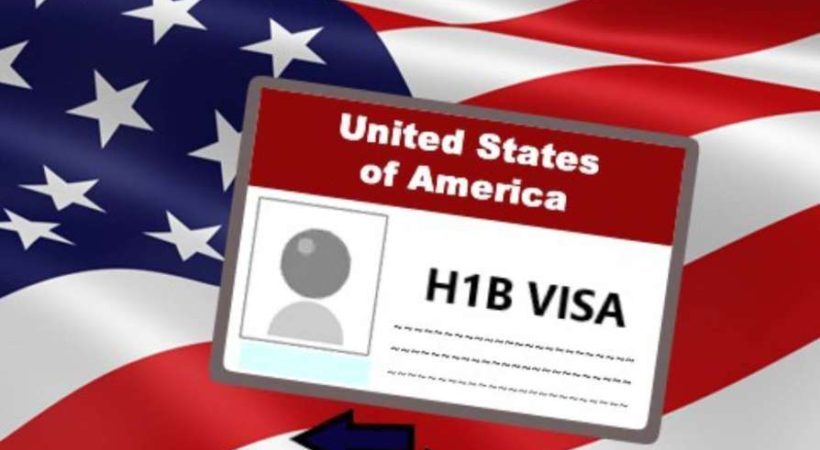
Leading Companies Sponsoring H-1B Visas in 2025/2026
Tech giants and consulting firms dominate H-1B sponsorship, filing thousands of petitions annually. Below are top employers for 2025/2026, based on 2024 USCIS data and industry trends, likely to hire African tech workers.
Amazon
Amazon led with 9,265 H-1B approvals in 2024, hiring software engineers and data scientists for AWS and e-commerce. With 1.5 million employees, it sponsors H-1B visas for roles in Seattle and California, offering $120,000 to $170,000.
Google secured 5,364 approvals, hiring engineers and AI specialists for cloud and search technologies. Based in Mountain View, it sponsors Africans for roles paying $130,000 on average, valuing diverse talent.
Meta
Meta, with 4,844 approvals, hires data scientists and software engineers for platforms like Facebook and WhatsApp. Despite layoffs, it sponsors H-1B workers in Menlo Park, offering $140,000 salaries.
Microsoft
Microsoft’s 4,725 approvals support roles in cloud computing and AI, hiring engineers in Redmond. Salaries average $125,000, with strong H-1B sponsorship for Africans.
Apple
Apple, with 3,873 approvals, sponsors engineers for hardware and software development in Cupertino. Paying $150,000, it seeks Africans with computer engineering skills.
Salesforce
Salesforce filed 1,808 petitions, hiring cloud architects and developers in San Francisco. Salaries start at $120,000, with H-1B sponsorship for tech roles.
Nvidia
Nvidia’s 1,519 approvals focus on machine learning engineers for AI and graphics. Based in Santa Clara, it offers $160,000 and sponsors Africans in high-demand fields.
Cisco
Cisco, with 1,330 approvals, hires cybersecurity analysts and network engineers in San Jose. Salaries average $115,000, with H-1B sponsorship for IT roles.
Consulting Firms
Firms like Infosys (8,140 approvals) and Cognizant (6,321) sponsor H-1B workers for tech clients, hiring Africans for software roles. Salaries range from $90,000 to $120,000, though some criticize their outsourcing models.
These companies, per USCIS data, are top H-1B sponsors, offering Africans a strong chance at sponsorship due to their scale and global hiring.
The H-1B Visa Process for 2025/2026
The H-1B process is complex but manageable with employer support. For FY 2026, USCIS opened registrations from March 7 to March 24, 2025, selecting 120,141 beneficiaries from 343,981 eligible registrations—a 26.9% reduction from FY 2025 due to a beneficiary-centric system reducing duplicate entries. Here’s how it works:
- Find a Sponsor: Secure a job offer from an H-1B-sponsoring employer like Amazon or Google. The job must require a bachelor’s degree in a field like computer science.
- Employer Registration: Employers register you in USCIS’s online system, paying a $215 fee per beneficiary. USCIS randomly selects registrants in the lottery.
- File Petition: If selected, the employer files Form I-129 ($780 fee) with a Labor Condition Application (LCA), ensuring you earn the prevailing wage (at least $60,000, often higher in tech). Filing begins April 1, 2025, for an October 1 start date.
- Visa Approval: USCIS processes petitions, with approval taking two to six months. You provide documents like a passport, degree, and resume. If approved, you apply for a visa at a U.S. embassy, such as in Lagos.
- Enter the U.S.: Once approved, you can start work, typically by October 2025. The visa is tied to the employer, but you can transfer to another H-1B sponsor.
Processing times have risen to 3.5 months, so employers plan early. Africans face no country-specific backlogs, but the lottery’s competitiveness requires applying to multiple sponsors.
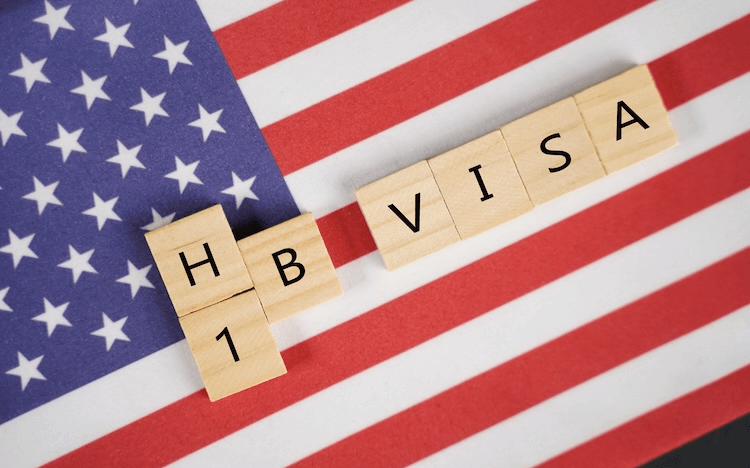
Who Qualifies for H-1B Tech Jobs?
To qualify, you need a bachelor’s degree or equivalent in a field like computer science, engineering, or data science. Africans from universities like Lagos or Nairobi often meet this requirement. Equivalent experience (three years of work per year of education) can substitute for a degree, benefiting bootcamp graduates. The job must be a specialty occupation, requiring complex duties and a degree, per USCIS criteria.
English fluency, common among Nigerians, is essential for collaboration. Certifications like AWS or Cisco enhance eligibility. A clean background check is required. Employers prioritize candidates with strong technical skills, adaptability, and a proactive attitude, qualities Africans often bring.
Where to Apply for H-1B Tech Jobs
Finding H-1B-sponsored jobs requires targeting the right platforms and employers. Here’s how to apply effectively:
Job Boards
Platforms like LinkedIn, Indeed, and ZipRecruiter list H-1B jobs. Use keywords like “H-1B sponsorship tech 2025” or “software engineer visa.” Specialized sites like MyVisaJobs and h1b.techfetch.com provide H-1B-specific listings, detailing sponsors like Nvidia. MyVisaJobs reports average salaries and employer trends, helping you target high-paying roles.
Company Career Pages
Check career pages of top sponsors like Amazon, Google, or Salesforce. Many list H-1B-eligible roles under engineering or IT. Email HR to confirm sponsorship, as not all openings advertise it.
Recruitment Agencies
Agencies like Boundless or GoElite connect tech workers with H-1B sponsors, assisting with applications and LCAs. They’re ideal for Africans new to the U.S. market, ensuring compliance with USCIS rules.
Networking
LinkedIn groups for African tech professionals or forums like Reddit’s r/cscareerquestions offer job leads. Connect with Nigerian engineers in the U.S. for referrals. Virtual job fairs, hosted by companies like Microsoft, provide direct access to recruiters.
Direct Outreach
Email or call smaller tech firms or startups, which filed 57,600 unique employer registrations in FY 2026. These firms, per USCIS, often sponsor H-1B workers to compete with giants, offering roles in AI or fintech.
How to Get Picked: Crafting a Winning Application
A standout application is critical in the competitive H-1B market. Create a one-page resume highlighting your degree, projects (e.g., a GitHub portfolio), and skills like Python or AWS. Include internships or freelance work, common among African tech graduates. A cover letter should explain your passion for U.S. tech, why you fit the role, and your eligibility for H-1B sponsorship.
For interviews, practice technical questions (e.g., coding algorithms) and behavioral ones like “Why join Google?” Use platforms like LeetCode to prepare. Virtual interviews require a stable internet connection and professional attire. Show cultural fit and enthusiasm, as Africans’ adaptability is a strength. Agencies like Boundless emphasize applying to multiple roles to increase lottery chances, targeting at least 10 sponsors.
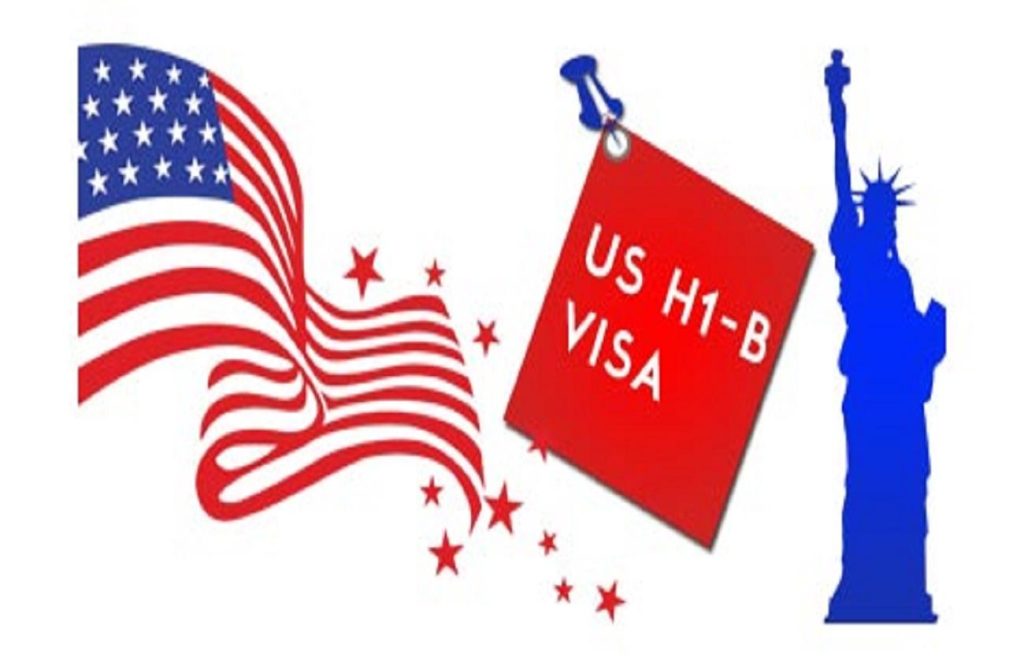
Challenges and Solutions
The H-1B process has hurdles. The lottery’s randomness means even qualified candidates may not be selected. Apply to multiple employers to boost odds, as the IZA study shows smaller firms rely heavily on H-1B hires. Processing delays, now averaging 3.5 months, require early planning. Layoffs, like Meta’s 85,000 cuts, raise fears of visa revocation, but a 60-day grace period allows job searches.
Costs, like the $780 I-129 fee, are employer-paid, but travel or legal fees may fall on you. Save in advance or negotiate employer coverage. Adjusting to U.S. tech culture, like fast-paced sprints, can be challenging. Join African tech communities, like Nigerians in Tech, for support. If not selected, consider alternatives like the O-1 visa for exceptional talent or CPT programs for students.
Tips for Success in H-1B Tech Jobs
To thrive, meet deadlines and collaborate effectively, as tech roles demand teamwork. Contribute to open-source projects or company hackathons to show initiative. Take training, like Google Cloud certifications, to boost skills and pay. Salaries range from $100,000 to $170,000, but costs in cities like San Francisco are high. Budget wisely, saving 20% of income.
If laid off, use the 60-day grace period to find another H-1B sponsor. Networking with colleagues can lead to referrals. Africans’ reputation for diligence helps build trust, enhancing career growth.
Understanding U.S. Tech Culture
U.S. tech workplaces value innovation and communication. Attend daily standups and share ideas clearly, even with strong English. Initiative, like proposing process improvements, earns respect. Tech jobs are intense, with long hours during launches. Prioritize health with exercise and rest to stay productive. Nigerians’ adaptability shines in dynamic environments.
Legal and Ethical Responsibilities
Follow workplace policies, like securing code or respecting data privacy. Report bugs or vulnerabilities promptly. Never compromise ethics, as violations risk your job or visa. Africans’ integrity strengthens employer confidence, ensuring long-term success.
Long-Term Opportunities
H-1B jobs can lead to green cards, with companies like Microsoft sponsoring EB-2 or EB-3 visas. After five years, you can pursue citizenship. Engineers may become tech leads, while data scientists can transition to AI research. Some Africans launch startups, leveraging U.S. networks. Community colleges offer affordable courses to upskill, opening roles like cloud architecture.
Resources for Tech Workers
USCIS.gov details H-1B processes, while MyVisaJobs provides salary and sponsor data. Apps like Coursera refine skills like machine learning. LinkedIn groups for African techies or forums like Stack Overflow share job tips. Immigrant centers in the U.S. offer visa and cultural guidance. X posts highlight demand, with @WIRED noting tech giants’ reliance on H-1B workers.
Common Myths About H-1B Jobs
Some believe H-1B visas are only for senior engineers. Entry-level roles like software developers qualify with a degree. Others think the process is too costly. Employers cover most fees, and travel costs are manageable. Finally, some assume H-1B workers displace Americans. Studies show they drive innovation, creating more jobs, per the IZA Institute.
Success Stories
Tunde, a Nigerian software engineer, secured an H-1B visa with Amazon in 2025. Earning $125,000 in Seattle, he used LinkedIn to connect with recruiters and LeetCode to ace interviews. His degree from Lagos and open-source contributions stood out.
Aisha, from Kenya, joined Nvidia as a machine learning engineer on an H-1B visa in 2024. Paid $150,000, she leveraged a bootcamp and agency support to land the role. Her persistence in applying to multiple sponsors was key. These stories show Africans can succeed with preparation.
Final Thoughts on H-1B Tech Jobs for 2025/2026
The H-1B visa opens doors for African tech workers to join U.S. giants like Amazon, Google, and Nvidia, offering salaries from $100,000 to $170,000 and career growth. Despite a competitive lottery, targeting top sponsors, crafting strong applications, and networking can secure your spot. The process demands persistence, but with 120,141 beneficiaries selected for FY 2026, opportunities abound. Start now—explore LinkedIn, apply to sponsors, and prepare for interviews. Your skills are in demand, and your U.S. tech career awaits.



